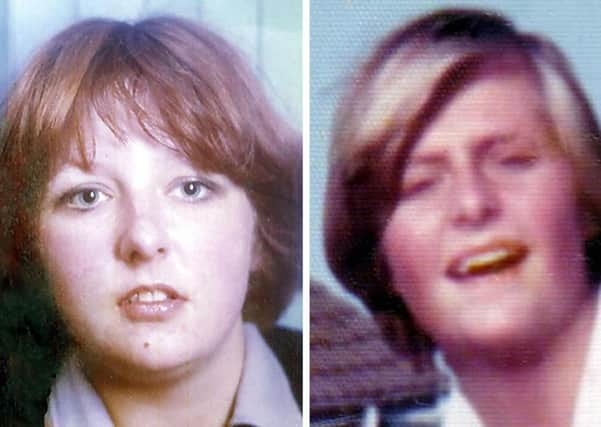World’s End murder trial hears DNA evidence


The High Court in Livingston was told the chances of it coming from another man unrelated to the accused, Angus Sinclair, was around one in a billion.
A forensic scientist reached the conclusion - described as a “conservative estimate” - after analysing staining on Helen Scott’s coat, jurors heard.
Advertisement
Hide AdAdvertisement
Hide AdSinclair, 69, is on trial at the court, where he denies raping and murdering Helen and her friend Christine Eadie, both 17.
The pair were last seen at Edinburgh’s World’s End pub on October 15 1977.
Christine’s body was found the following afternoon at Gosford Bay, in Aberlady, East Lothian, while Helen’s body was discovered a few hours later in a wheat field near Haddington, East Lothian.
The ninth day of the trial heard evidence from forensic scientist Martin Fairley, 52.
He told how he analysed four small areas of white staining taken from the inside lining of Helen’s coat for DNA.
A profile consisting of 17 types or regions of DNA was obtained and found to match 17 of the DNA types in Sinclair’s profile, the court heard.
In a report prepared for the court, Mr Fairley concluded: “The probability of finding these 17 DNA types matching types in Angus Sinclair’s DNA profile if the semen staining from the lining of the coat worn by Helen Scott originated from another male, unrelated to Angus Sinclair, is estimated to be in the order of one in a billion.”
He later talked the court through the statistical process and described the one billion figure as a “conservative estimate”.
Advertisement
Hide AdAdvertisement
Hide AdThe court was also told about swabs taken from Christine’s body which produced partial DNA profiles.
In one, the chances of it coming from another man unrelated to Sinclair was estimated as being around one in 560. In the second, it was said to be around one in 40, the court was told.
Sinclair denies the charges against him and has submitted three special defences of incrimination - blaming his brother-in-law Gordon Hamilton, now dead; alibi - saying he was fishing on the banks of the Firth of Forth near Cockenzie power station at the time; and consent to sexual intercourse.